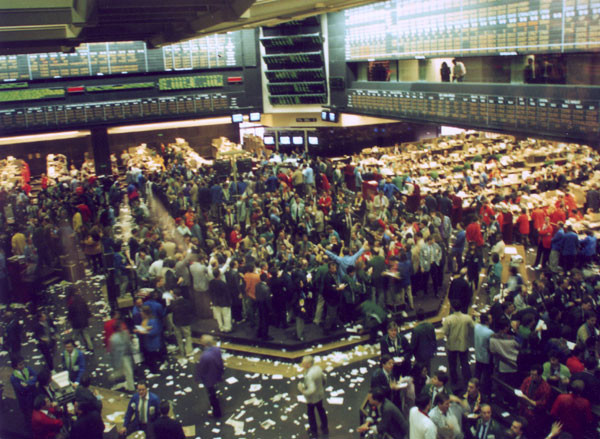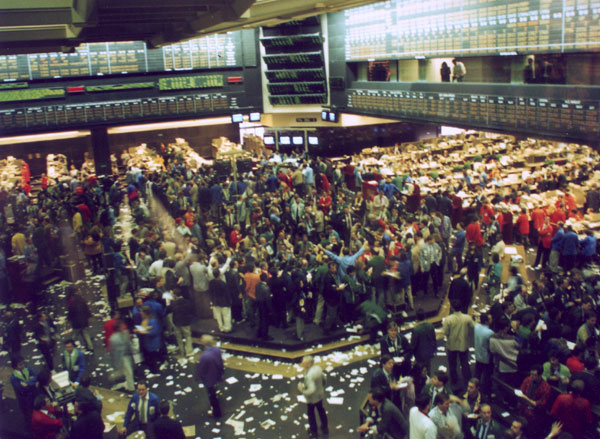
This week, after 167 years, the futures trading pits in Chicago closed down. Computers now handle the work that shouting traders flashing hand signals used to do. I was struck by this part of the story:
What’s also disappearing is a rich culture of brazen bets, flashy trading jackets and kids just out of high school getting a shot at making it big. The pits were a ruthless place, but they were also a proving ground where education and connections counted for nothing next to drive and, occasionally, muscle.…
Grant, the runner turned clerk who now oversees his own trading firm, says he has embraced change, too. But he mourns the loss of the kind of entry-level positions that gave kids without much education a chance to prove themselves, just as he did.
“The customer doesn’t have to call anyone to execute a trade,” he says.
Sullivan, the broker, puts it bleakly.
“It’s kind of a slow death for people,” he says. “Maybe I am holding on to something that needs to go.”
In my latest book, I talk about the dwindling away of these sorts of high-paying jobs for people with less education. In many ways, this is a positive development. The futures market is undoubtedly faster and more efficient now that computers are running the show. It’s good for people to get more education and find better-paid, more personally gratifying work—for instance, jobs running and fixing the machines.
But it’s important to remember how critical these sorts of jobs are in halting a widening gap between the rich and poor. After all, unionized factory jobs helped build a strong and broad middle class in this country in the decades after the Second World War. And as much as we tout education as a cure-all for all the problems that arise from these sorts of economic transitions, the fact remains that educational opportunities are wildly unequal. People largely get the quantity and quality of education that their parents did, and the academic gap is growing between the children of more and less privileged families.
Technological change always creates more good jobs, but for whom exactly? Greater efficiency makes our lives easier as consumers, but what are its consequences for us as members of families and communities? The middle-class jobs that sustained many households and neighborhoods and cities are being automated and outsourced away. In our vast economy the loss of these sorts of jobs barely makes the daily headlines, but in the long run it matters. Perhaps it’s the slow death of something important.
Victor Tan Chen Victor Tan Chen is In The Fray's editor in chief and the author of Cut Loose: Jobless and Hopeless in an Unfair Economy. Site: victortanchen.com | Facebook | Twitter: @victortanchen
- Follow us on Twitter: @inthefray
- Comment on stories or like us on Facebook
- Subscribe to our free email newsletter
- Send us your writing, photography, or artwork
- Republish our Creative Commons-licensed content

